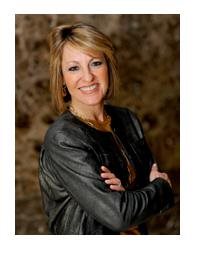
Bethesda, MD—“The act of getting through a divorce proceeding is like solving a big puzzle,” DC area divorce attorney Robin Taub told laws.com in a recent interview. “It requires a lot of patience and creative thinking.”
For Taub, creative thinking in divorce law has led to 30 years of success in helping people negotiate their family disputes and marital dissolution. In that time, she has seen significant changes in terms of how people handle their divorce disputes. “Most people want to work together to resolve their disputes in an amicable manner; I also think there has been a development of more progressive views on custody between parents,” she says. Since both parents are frequently working, dads have become more involved in the raising of the children. Further, in most states, the Courts are more inclined to order a shared custody arrangement when there are two actively involved parents.
(More on News at LAWS.com, Contact Sean for interviews “seanc@laws.com”)
This is not only due to changes in family courts or judges, according to Taub. “This is due, in part, to the fact that more women are working and having to balance that work with raising a family. The workforce is comprised of an almost equal amount of men and women, and even with young children, frequently both parents are working. This is not the way it was 20, 30 years ago. Moreover, as young women graduate from college and graduate schools, they want to pursue their own career, a phenomenon that is supported by our society very differently than it was years ago. The result is that when folks get divorced, they have to work together to determine how best to care for the children and actively involve both parents in the process.”
One of the newest processes for proceeding with a separation and divorce is Collaborative Divorce, and it can help divorcing couples to resolve their disputes without needing to go to trial. Taub is a major proponent of the Collaborative Divorce process, saying: “It is the best thing to happen to divorce in quite a while. “Collaborative Divorce is an alternative approach to a traditional “adversarial” divorce. It focuses on helping the divorcing couple and their family move to the next stage in their lives in a manner that is healthier and less painful. Collaborative Divorce utilizes a “team based” approach in which each party has a lawyer trained in collaborative law, with the option of calling upon other professionals, such as a divorce coach, a neutral financial advisor and/or a child specialist, who will provide additional support in their area of expertise.
With the collaborative process, rather than the traditional approach to divorce which frequently leads to animosity between the parties, “everyone is helping each other to move on,” Taub says. “It is less expensive, and the parties can walk away being able to co-parent in a much healthier manner, agree on creative financial solutions that address issues a Court cannot, and perhaps be friends’. While the parties do sign an agreement not to litigate, they do not lose that right if the collaborative process is not successful. There are certain protocols, such as finding a new lawyer and waiting 30 days, before they can proceed with litigation.
One of the keys to having an amicable divorce, according to Taub, is being able to not let the raw emotions prevent the settlement. “Have a container, such as the collaborative process, or mediation, to help contain the emotions, so that the people can work together to create a business solution and a parenting plan without allowing the emotions to derail the process,” she says.
When it comes time to find a divorce attorney, the stressful process can often cause people to just pick the first lawyer they hear about or find on the internet. Taub says that it's important to interview several attorneys and you will know if it’s the right fit. “Find someone you can trust, who has experience with your particular situation and can see this as a business transaction, so that you can look back in five years and know that you did right by your children, your spouse, and yourself.”
The bottom line? “I tell people to find someone they can trust because this is a person you will be working with to get you through one of the most difficult periods of your life.”



























